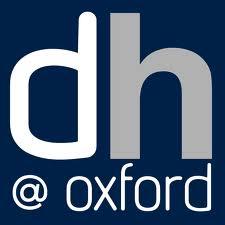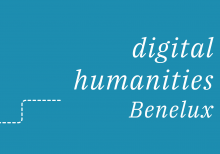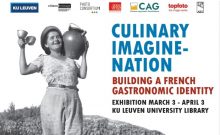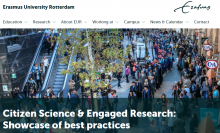 Registration has opened for the Digital Humanities at Oxford Summer School (DHOxSS). DHOxSS is an annual event for anyone interested in Digital Humanities.
Registration has opened for the Digital Humanities at Oxford Summer School (DHOxSS). DHOxSS is an annual event for anyone interested in Digital Humanities.
This year’s DHOxSS will be held on 14-18 July 2014.
Register now at: http://digital.humanities.ox.ac.uk/dhoxss/2014/
DHOxSS is for researchers, project managers, research assistants, students, and anyone interested in Digital Humanities. DHOxSS delegates are introduced to a range of topics including the creation, management, analysis, modelling, visualization, or publication of digital data in the humanities. Each delegate follows one of our five-day workshops and supplements this with morning parallel lectures. There will also be a (peer-reviewed) poster session giving delegates a chance to present posters on their Digital Humanities work to those at the DHOxSS.
This year’s five-day workshops are:
1. Introduction to Digital Humanities
2. Taking Control: Practical Scripting for Digital Humanities Projects
3. Data Curation and Access for the Digital Humanities
4. A Humanities Web of Data: Publishing, Linking and Querying on the Semantic Web
5. Using the Text Encoding Initiative for Digital Scholarly Editions
Morning parallel lectures include contributions from:
James Brusuelas, Lou Burnard, Julia Craig-McFeely, Emma Goodwin, Howard Hotson, Eleanor Lowe, Carole Palmer, Allen Renear, Kerri Russell, Judith Siefring, Lynne Siemens, Ray Siemens, William Kilbride, Zixi You, David Zeitlyn, and more.
Keynote lectures: Ray Siemens and Melissa Terras
Evening events: Monday – a peer-reviewed poster session and reception at Oxford University Museum of Natural History; Tuesday – a guided tour around Oxford city centre; Wednesday – an elegant drinks reception and three course dinner at historic Wadham College; Thursday – The Oxford Research Centre in the Humanities Lecture; Friday – Trip to the pub.
10% discount on registration fees if you block book 10 or more places from a single institution.
DHOxSS is a collaboration between the University of Oxford’s IT Services, the Oxford e-Research Centre, the Bodleian Libraries, the Oxford Internet Institute, and The Oxford Research Centre in the Humanities. We are very pleased this year to partner with the Center for Informatics Research in Science and Scholarship, University of Illinois at Urbana-Champaign, to provide the Data Curation and Access workshop. Thanks to all our other external partners listed here: http://dhoxss.humanities.ox.ac.uk/2014/about.html.
If you have questions, then email us at events@it.ox.ac.uk for answers.
More details at: http://digital.humanities.ox.ac.uk/dhoxss/2014/
———————————————————————————————————
NeDiMAH Early-Career Researcher Bursaries for DHOxSS Humanities Web of Data Workshop, Deadline: 22 April 2014
The NeDiMAH project has sponsored up to 6 bursaries of up to EUR 500 each for those attending the Humanities Web of Data workshop in particular (see http://dhoxss.humanities.ox.ac.uk/2014/HumData.html). Applicants should be early-career researchers in the humanities, and must be working in participating NeDiMAH countries (see http://www.nedimah.eu/Contributing-Organisations) and priority will be given to applicants whose travel costs mean they would not otherwise be able to attend. ‘Early-Career Researcher’ is defined as up to five years post-phd (or equivalent).
The DHOxSS will offer an excellent opportunity to gain knowledge and participate in discussions about a wide range of digital techniques and research methods, as well as exploring key topics in depth with leading senior researchers and technologists.
The application form asks for a description (max 250 words) of how attending the Humanities Web of Data workshop in particular will benefit your research. Applications are due by 22 April 2014. For more information see: http://dhoxss.humanities.ox.ac.uk/2014/bursaries.html and for enquiries email nedimah-bursaries@it.ox.ac.uk.






 If you have interesting news and events to point out in the field of digital cultural heritage, we are waiting for your contribution.
If you have interesting news and events to point out in the field of digital cultural heritage, we are waiting for your contribution.
























